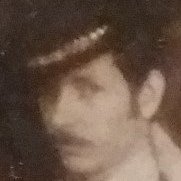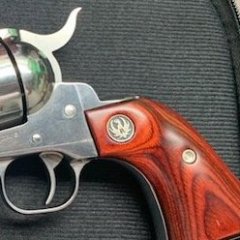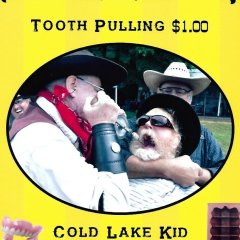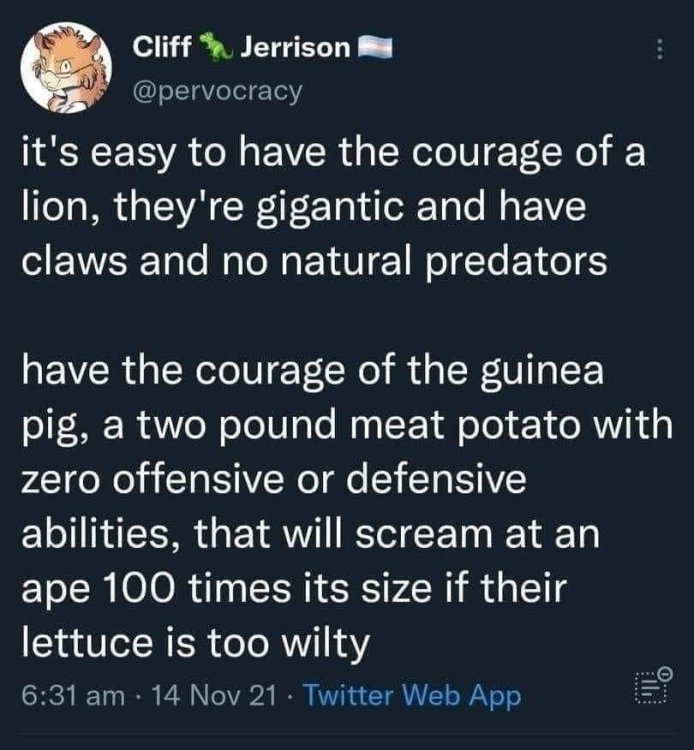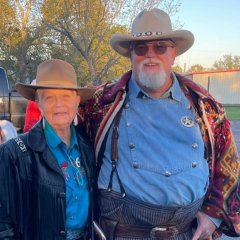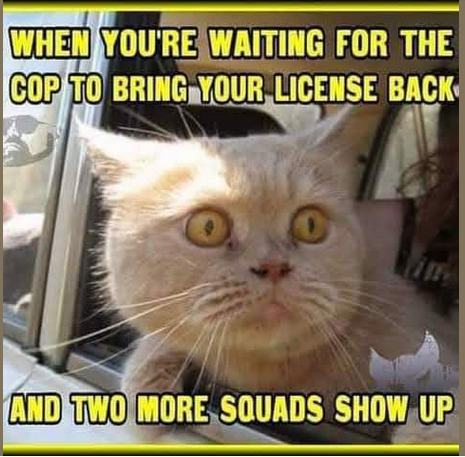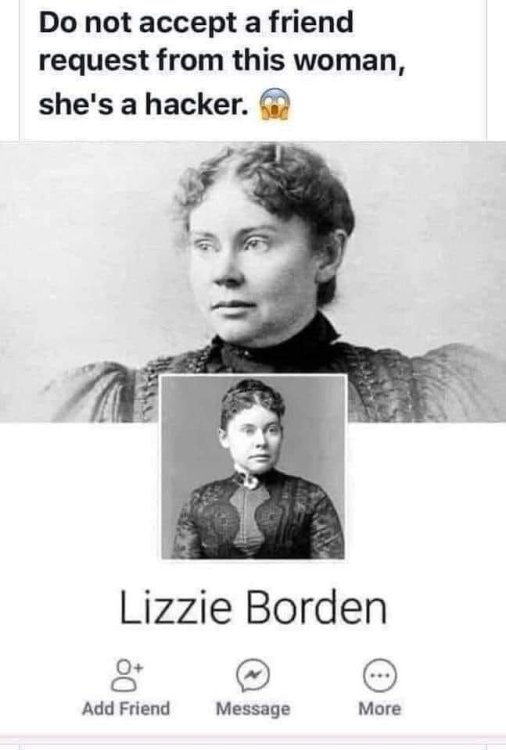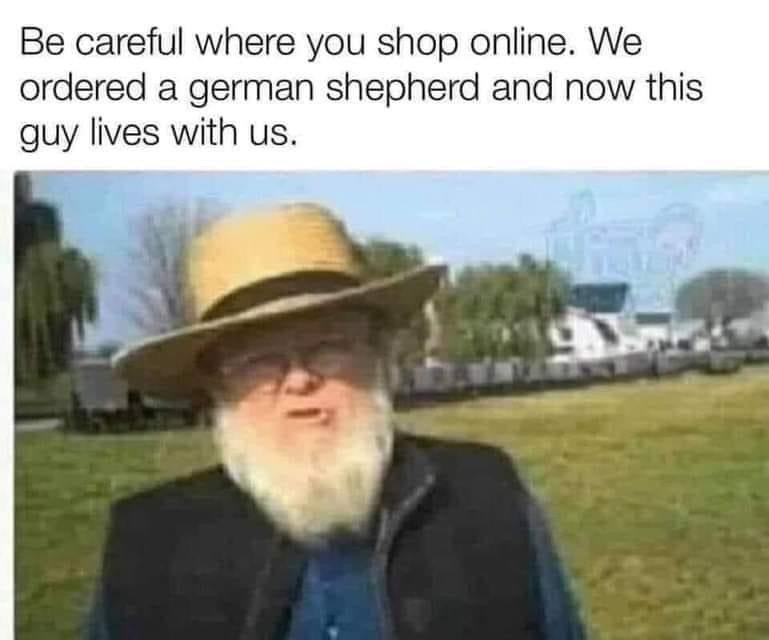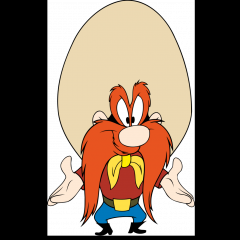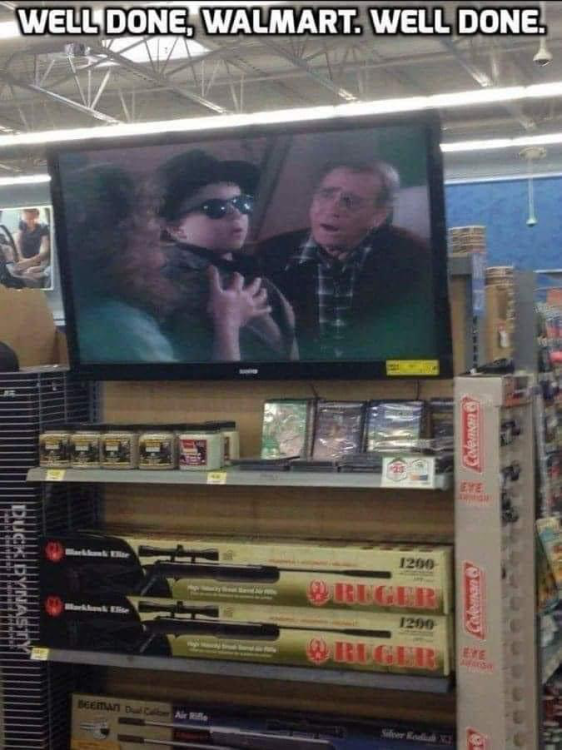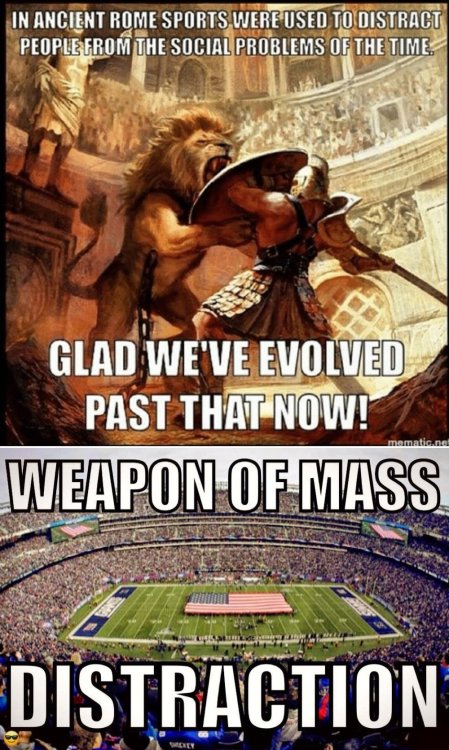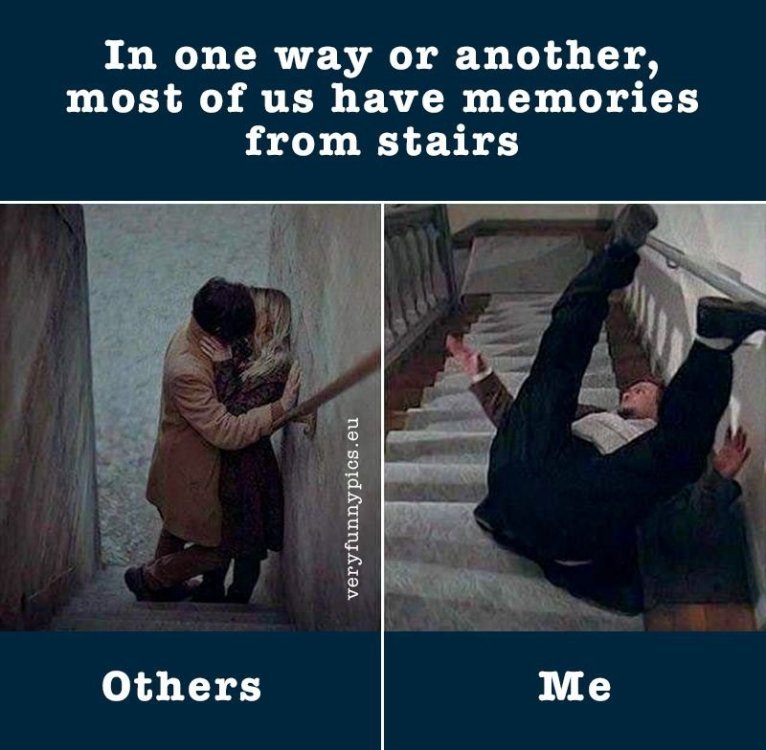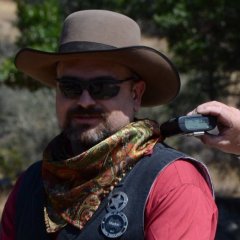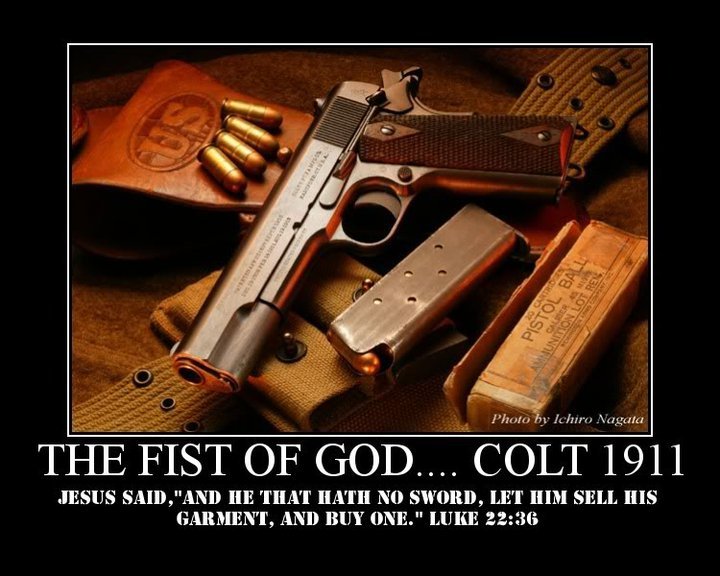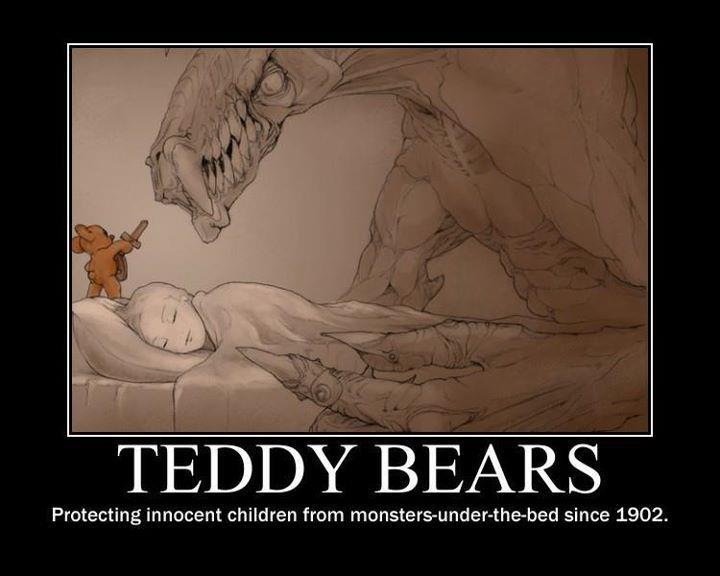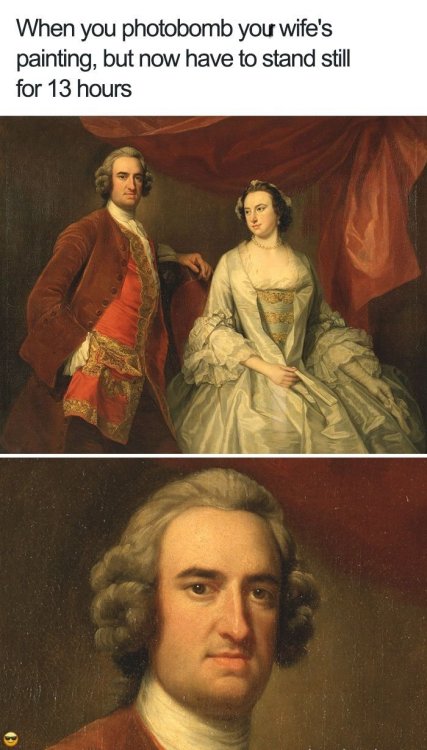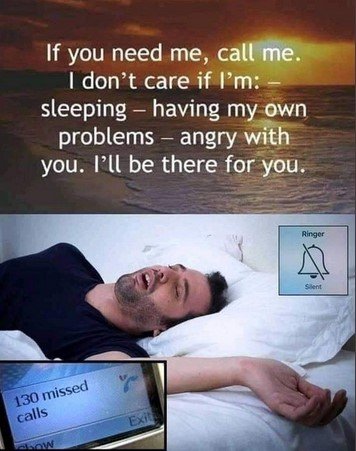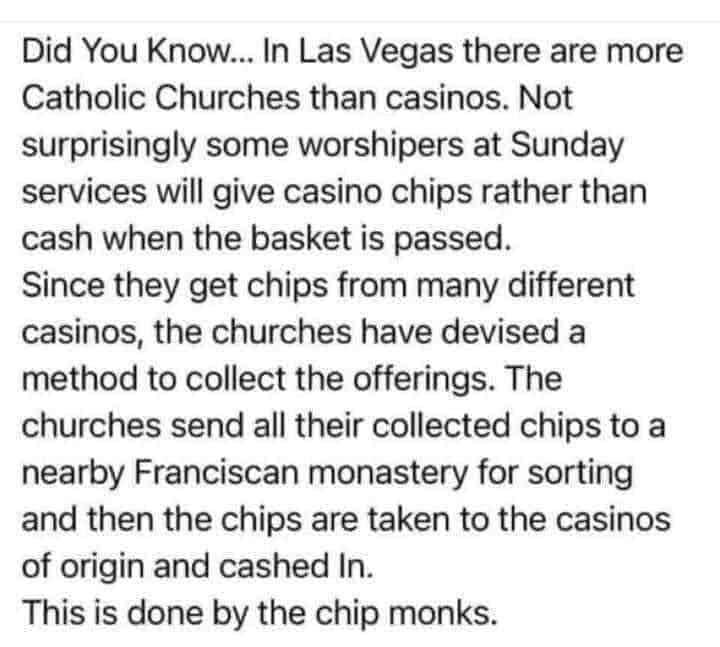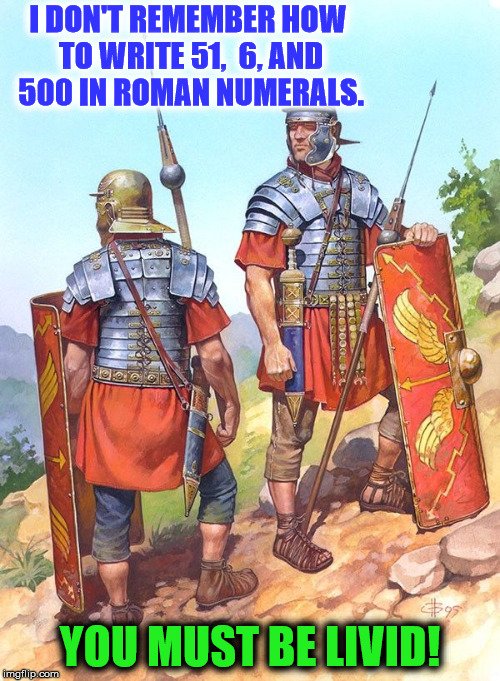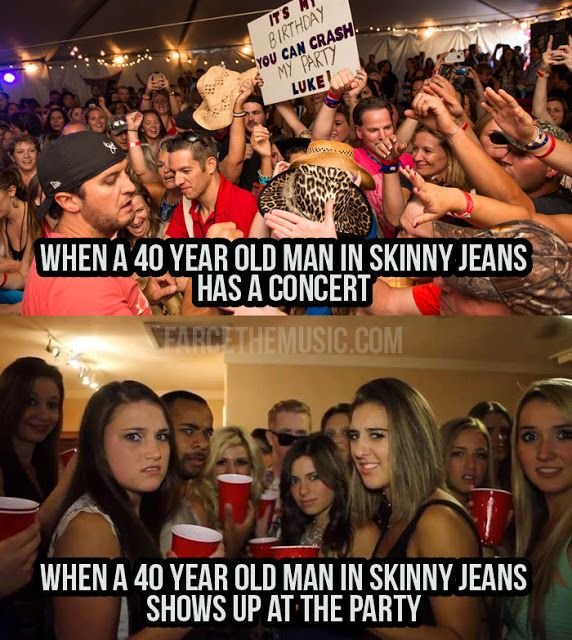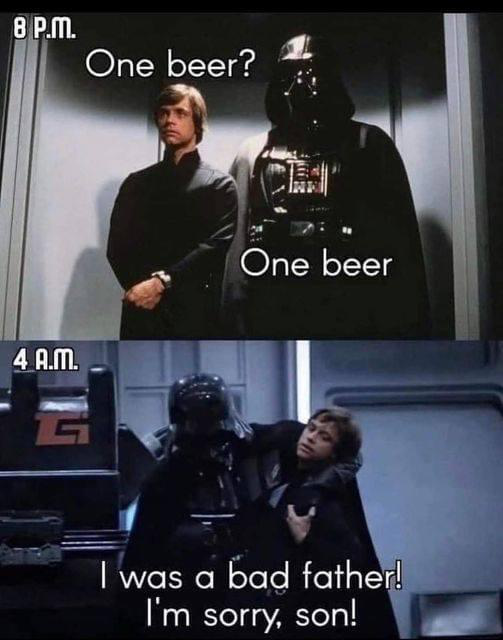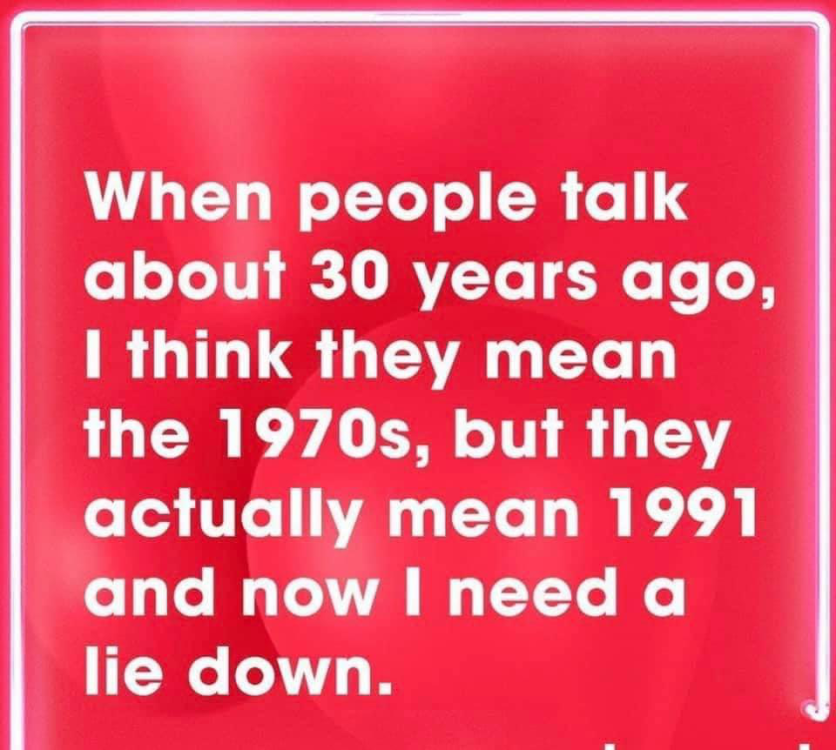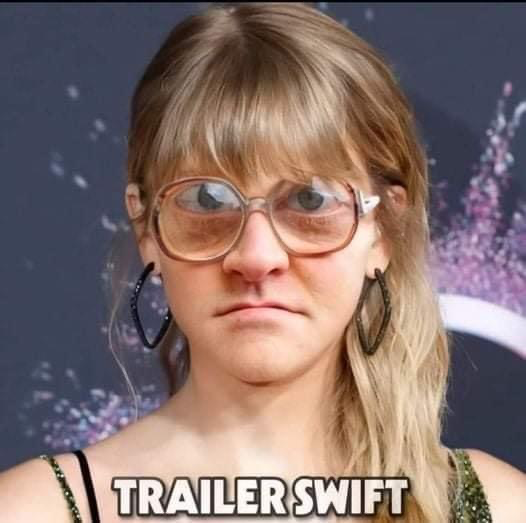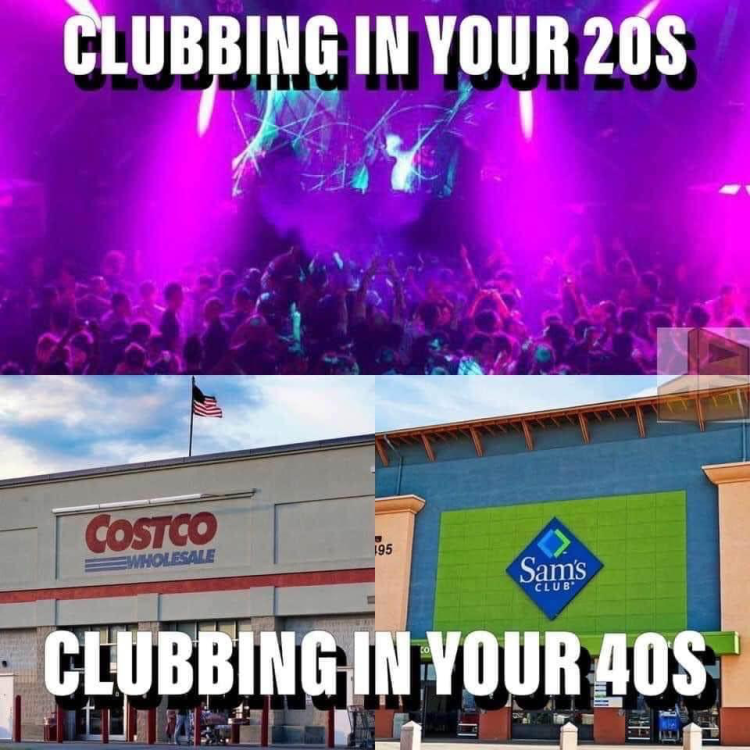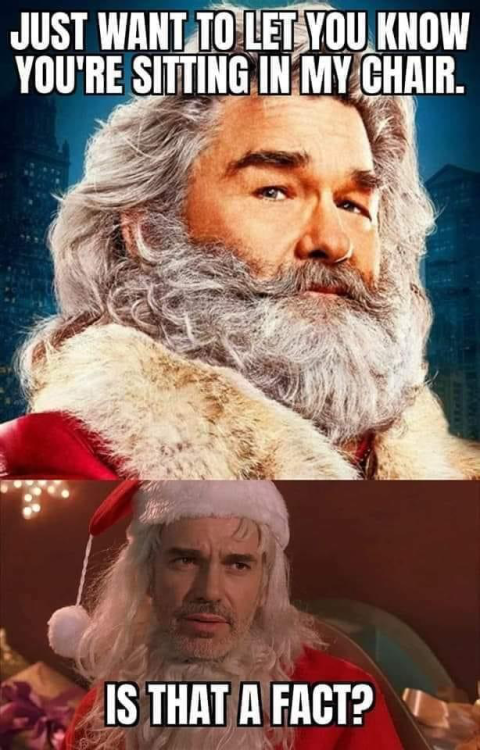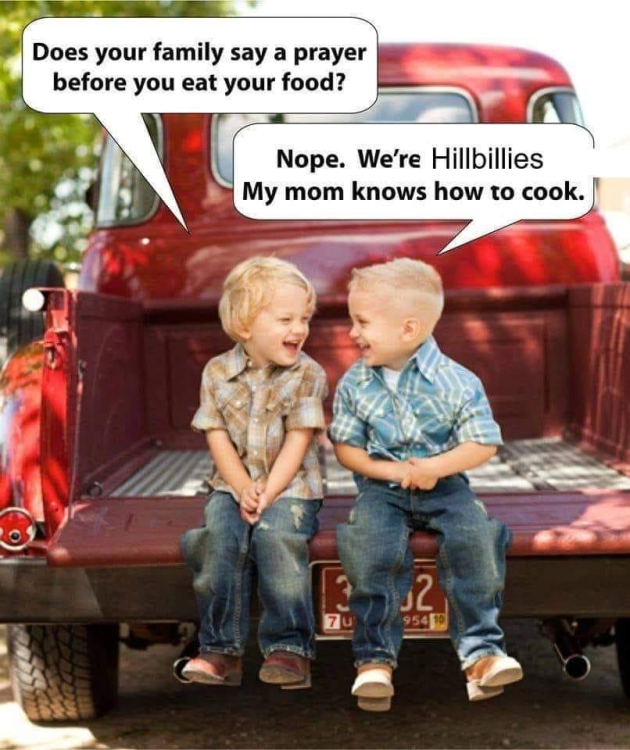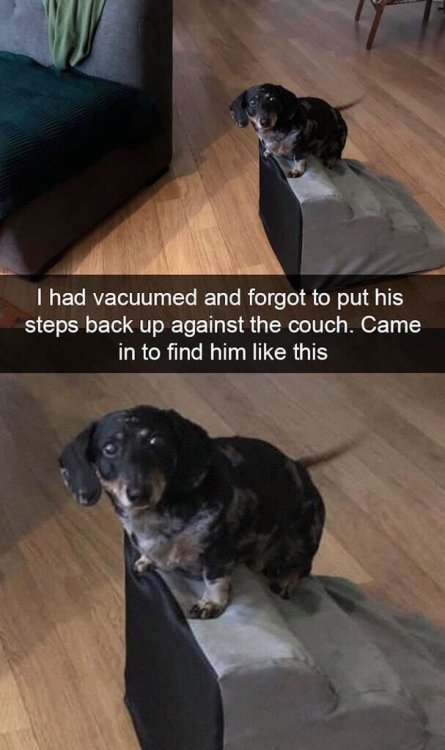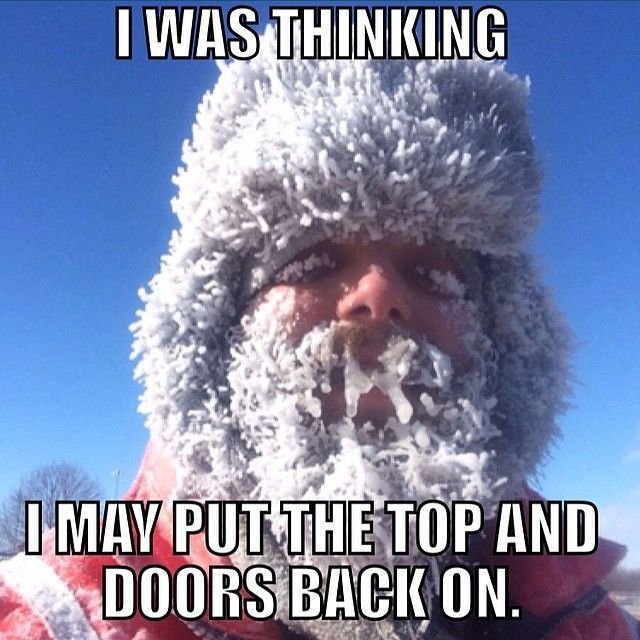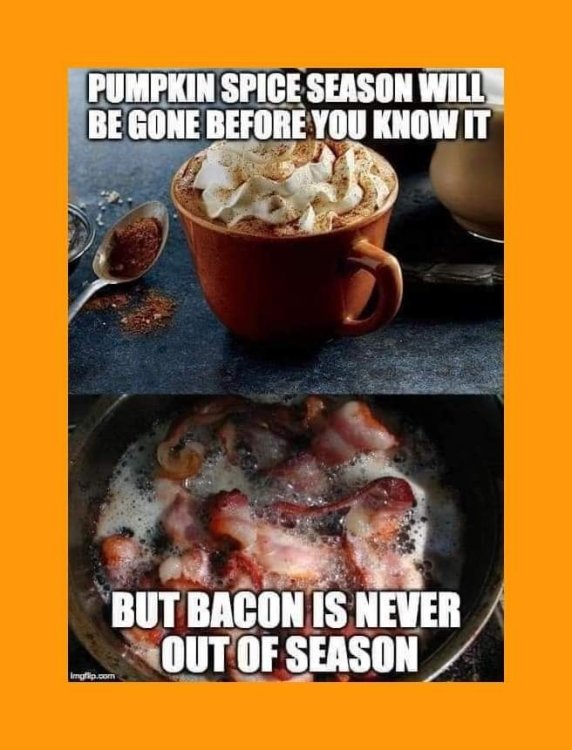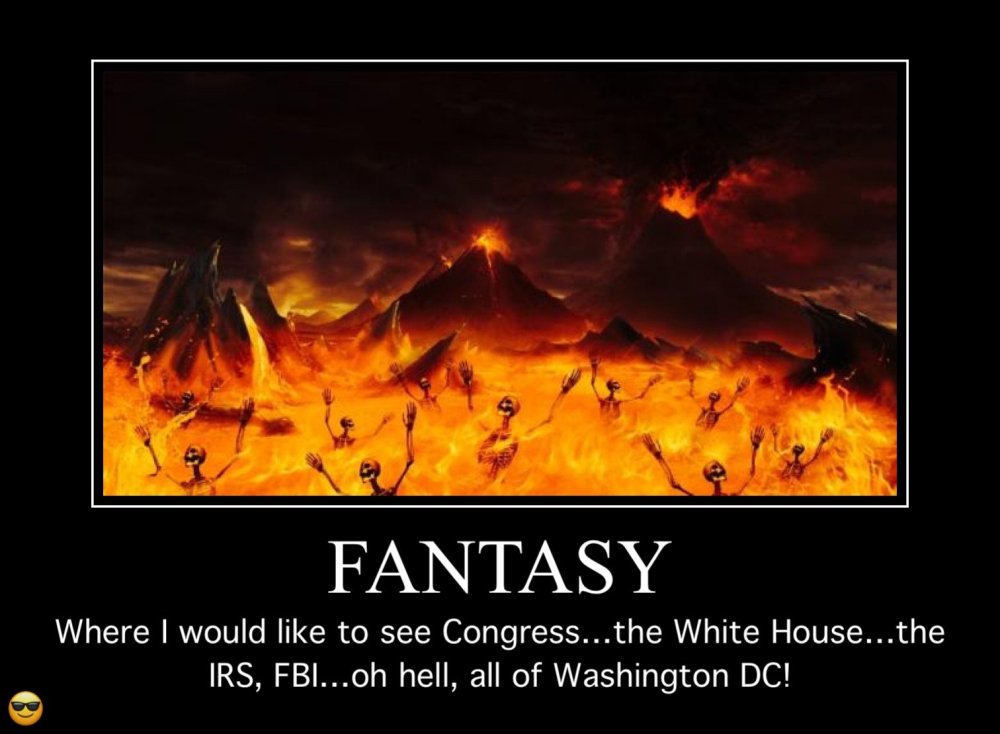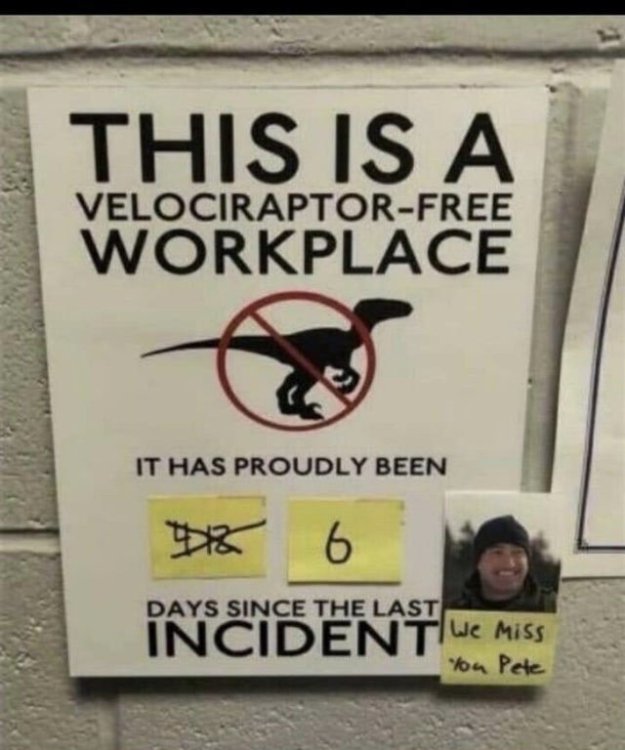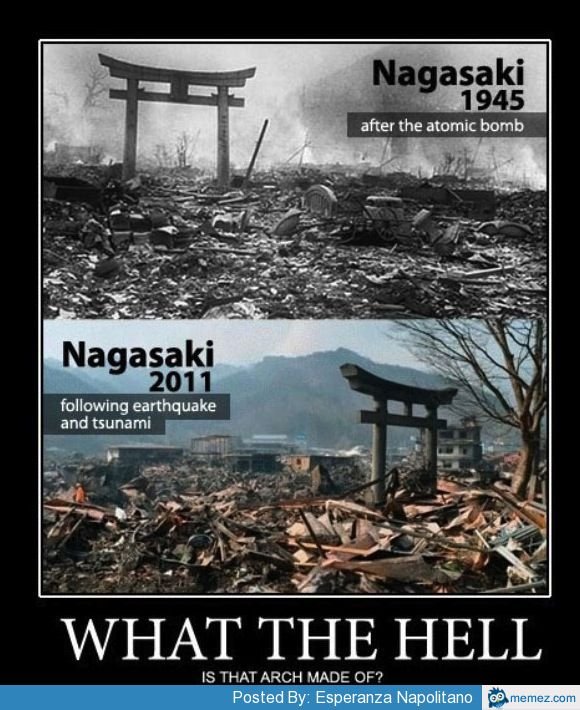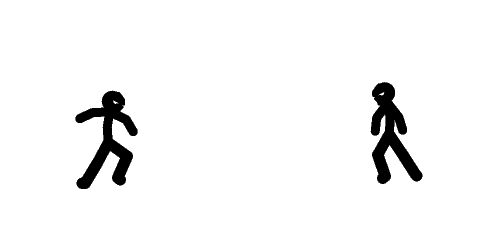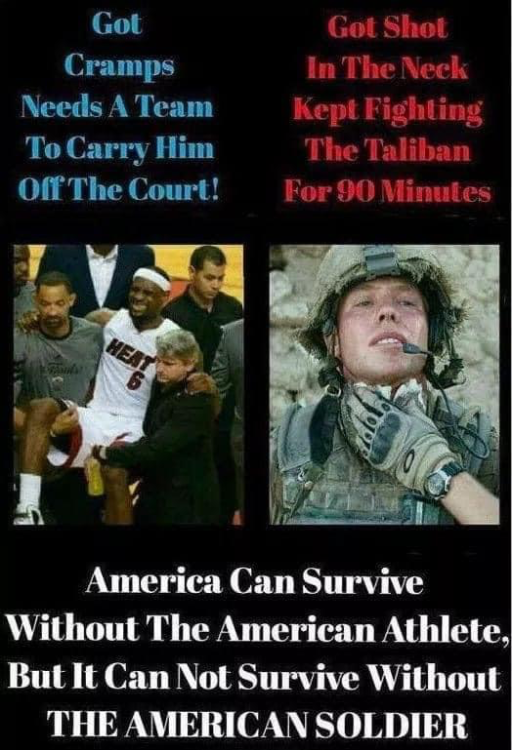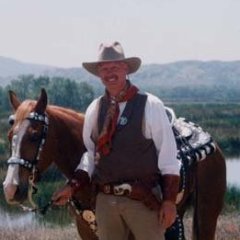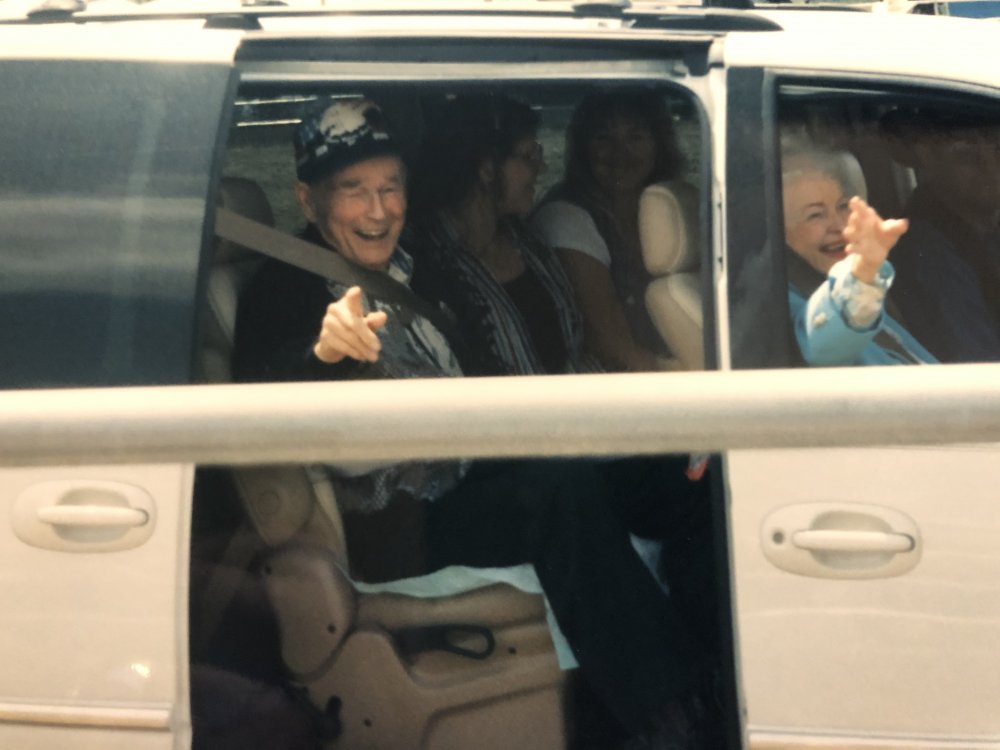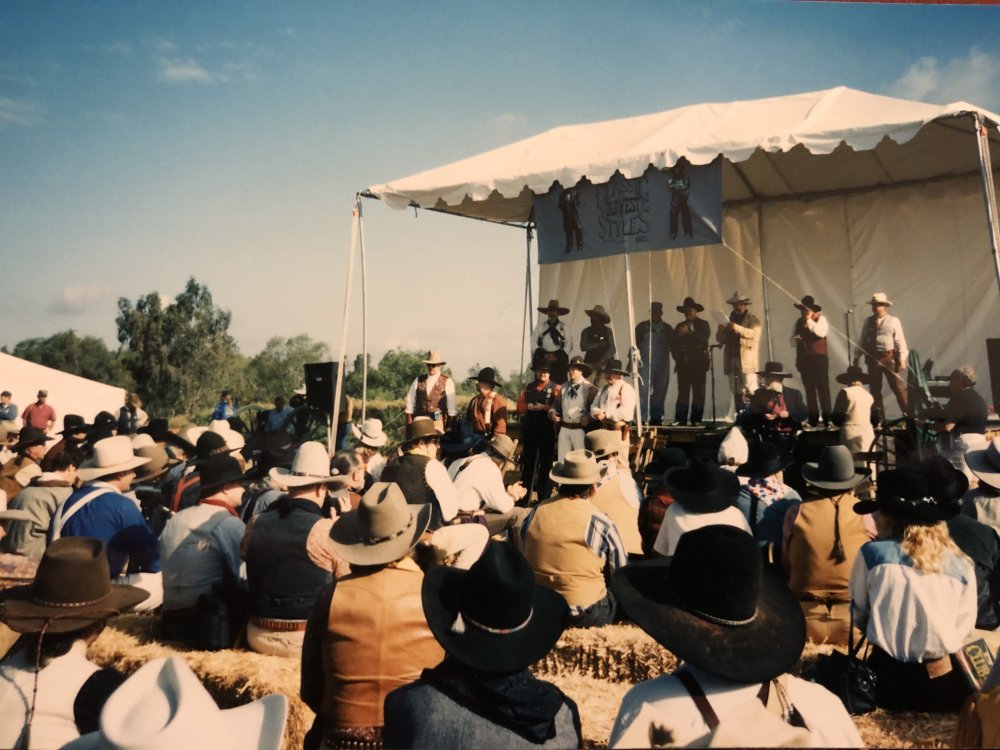Leaderboard
Popular Content
Showing content with the highest reputation on 11/28/2021 in all areas
-
5 points
-
3 points
-
3 points
-
502. HISTORY, AND A FUTURE Sheriff Linn Keller sized up the Confederate officer who stood before him. "Ambassador," Linn said. "Yes, sir. First Ambassador for the Confederacy." "Forgive me, sir, but I am a bit confused here." "Not confused, sir," Ambassador Neil said, "just ... wellsir, I don't read minds and I don't expect anyone else to, either." "You've never met my mother," Linn said ruefully, and the Ambassador's eyes narrowed a little at the corners and he laughed with the Sheriff. "This will take some explaining," Ambassador Neil said. "I believe there is pie," Linn said. "What say we head for the kitchen." Not many minutes later, two Sheriffs, a Confederate officer, a curious, pale eyed son all sat around the kitchen table: the Sheriff took a pie, sliced it crossways, turned it, sliced it once more; each now had a fourth of a pie, a fork, and a mug of fresh coffee. The Ambassador sampled the pie, delighted in its taste: he said his wife used to make such pies, and Linn saw a shadow pass over his face, and he knew from this -- and the smoothness about the base of his left ring finger, where a wedding band apparently had lived until very recently -- that the Ambassador was a recent widower. "There were two interstellar civilizations," the Ambassador explained, and Jacob placed his fork carefully, soundlessly, on his plate: he took a short sip of coffee and did his best to turn invisible, for when he did this, sitting among adults as he often did, he learned more than the adults generally believed. "These two civilizations were very evenly matched, and as always happens, they ended up at war," Ambassador Neil said slowly. "They fought each other to a bloody draw and for two centuries they were so evenly matched that neither could get an advantage over the other." He smiled with half his mouth. "Then one or the other of them decided they would try a new tactic. "Instead of new and advanced, they said, 'Why not recruit primitives? Primitive weapons, primitive tactics, something against which they have no defense." He snorted. "They abducted Suthrons from what we knew as Lincoln's War. They took soldiers at first -- they told us we were the fiercest, most dedicated soldiers on the planet -- and then they took whole families. We believe they wished to establish a breeding population." "What happened?" Linn asked, leaning forward, clearly interested. The Ambassador smiled, and his smile was not pleasant. "They did not realize how adaptable the human mind really is, sir. They used a device to inject information directly into the brain. Our ancestors absorbed much more than they realized -- so much so that on the first night, we were able to overcome their security protocols and gain control of the base, then the planet." Linn's right eyebrow raised. "That," he said carefully, "is some achievement." "We had to fight their whole damned civilization, but we did it. We used their own teaching device to learn about their weapons, their capabilities ... we turned their own weapons on them." The Ambassador stared into his shimmering mug of coffee. "We had to wipe out an entire civilization. Planet by planet, system by system, and then the civilization they wanted us to attack ... apparently they reasoned that if we could defeat their enemies so easily, we might go after them." He leaned back, staring at something a few miles past the opposite kitchen wall. "We had to take them on as well ... but by then we'd learned how to infiltrate their systems." He looked very directly at Linn. "We had weapons at our fingertips that would detonate whole planets, weapons that could crush a star into an infinitesimal point of gravity, or blow it into interstellar gas. We could perform surgery from orbit or blast cities into a glass plain, and God help us, we used nearly every weapon available." He looked over at Marnie. "We kept track of Earth. It was home. Some wanted to return, but we ... all of us had used their brain injectors and we had knowledge that Earth did not, so we ... just watched." "You're not the Grays," Linn said with a quirk-up of his left eyebrow. The Ambassador laughed. "No. No, we are not, in spite of --" he stuck out his arm -- "the shade of our uniform." "I see you carry what appears to be a Navy Colt." "I do, sir." "One such was found in my mother's effects." The Ambassador was suddenly very still, very attentive: he looked at Marnie, nodded. Marnie lifted a cloth wrapped bundle from the satchel on the floor beside her chair. She unwrapped the bundle. It was a Smith & Wesson .44, in a carved leather holster, with a matching floral carved belt wrapped around the holster. She withdrew the pistol, slid it over to her father. "Let me call your attention to the engraving around the muzzle." Linn picked up the Smith & Wesson -- it appeared to be nearly new -- yes, loaded -- he frowned at the engraving circling the gun muzzle, his bottom jaw sliding out as he did. He closed the action, slid it over to Jacob. Jacob frowned at the vine-and-rose circling the muzzle, ran his eye down the blued steel barrel, to the very lifelike rose hand-chased on the side of the frame, with the initials SLM worked into the exquisitely rendered blossom. "Sarah Lynne McKenna," Jacob said, handing the pistol to his white-suited sister. "Jacob." Linn nodded and Jacob rose. "Mister Ambassador," Linn said, "I believe you want to see this." Jacob returned to the table, placed a Navy Colt in front of the Ambassador, and with it, the full flap holster and belt. The Ambassador laid the belt out flat, studied it: he rose, released his own belt, laid it down beside this one. He withdrew one Navy Colt, then the other: he examined them, side by side, nodded, sat back down. "We have a very strong sense of history," Ambassador Neil said slowly. "Our ... appearance ... is historic: I carry the rank of Colonel" -- Marnie saw something in her father's eyes -- "and the sleeve device is that of a Colonel of the Confederacy." "And a spacefaring people with faster than light capability still carry the Navy Colt?" Linn asked quietly. The Ambassador laughed. "I believe your Swiss Guard still carry halberds," he said, "but they are every bit as deadly as when men settled wars with sharpened steel. Yes, Sheriff, we still wear the Navy Colt, and our ceremonial troops carry the Enfield musket, but our bayonets are sharpened at the tip, the rifles are loaded, we carry reloads and caps on our belt, and we are practiced and effective with even these ceremonial weapons." "Old," Linn nodded, "does not mean ineffective." The Ambassador replaced his gunbelt about his middle, returned the revolver to its holster. "One of my ancestors," he said, "traded his -- this -- gunbelt and revolving pistol to what he described as a remarkable young woman astride a truly huge black horse, in exchange for the one she wore." "This one." Linn thrust his chin at the Smith & Wesson. "Yes, sir. That one." "Trade you back." The Ambassador smiled. "This," he admitted, "is too great an opportunity not to say yes. I had no hope at all that my ancestor's pistol still existed, let alone its holster and belt." "I feel the same," Linn replied. "Mister Ambassador, may I show you something?" "Roses," Marnie whispered in Jacob's ear. "Roses, on the Z&W's engine." "Our family has ever used the rose as an insignia." He turned, opened his laptop: it lit up and its first image, even before its login, was a profile shot of a steam engine. "This," he said, "is The Lady Esther. She was named for an ancestor's wife." "The young woman whose pistol this was," the Ambassador said, turning to look at the artifact, "would be the Esther of whom you speak?" "No," Linn chuckled. "No, the pale eyed soul on the big black horse was the get of my several times great grandfather. Her name was Sarah Lynne McKenna, known also as The Black Agent, for when she was a detective for the Firelands District Court, she wore all black." The Ambassador nodded slowly. "Something tells me," he said, "yours is a rich and well researched history." It was Marnie's turn to laugh. "Friend," she said, "you don't know the half of it!" Linn and Jacob watched as something like a bolt of lightning fired up from the back field. "I understand," Linn said softly, "the Ambassador's ship landed where his ancestor's ship landed, back in Sarah's day." Jacob nodded. "Sir?" "Yes, Jacob?" "I notice the Ambassador wore the Masonic square-and-compasses." "I saw that." "That means his visit is one of those secrets of a Master Mason you were talking about." Linn nodded, his bottom jaw sliding out again. "You could say that." "It was good to see Marnie again, sir." "Yes, it was." Linn looked at Jacob. "She told me a few things when it was just she and I." Jacob's face was serious, his eyes steady on his father's. "Her children are dead." Jacob's eyes widened a little and Linn saw his son's nostrils flare a little as he took a long, steadying breath. "What happened, sir?" "A doomsday machine and a suicide squad." "From where?" "The very last one left when they wiped out one or the other of those alien civilizations." Jacob's head bowed for a long moment. When he looked back at his father, his young eyes were very pale, the flesh of his face drawn tight over his cheek bones. "Are they dead, sir?" he asked quietly. "They are dead, Jacob." "She never let on." "I know." Jacob's eyes stared into the distance. "Sir?" "Yes, Jacob?" "They were family." "Yes, Jacob, they were." "How do we mourn them?" "We will mourn them in our own way, Jacob. Their names will be engraved in the family plot, and we will not forget them." Jacob shook his head, looked away, looked back. "Sir, I am ... " Jacob stopped, closed his eyes, took a long breath, fisted his hands: he allowed himself to feel rage, then he cast it from him. "I must master my passions," he said quietly, "lest they master me." Linn waited. "I would like very much to kill that suicide squad myself." "As would I, Jacob, but you can't kill the dead." "Damned shame." Jacob shook his head and laughed. "I reckon I could pull a Judge Roy Bean and hang their dead carcasses by the neck and then shoot 'em a few times." Linn nodded; he'd had to take a moment himself to take his own raging passion in hand. "Sir, was that a Martian craft?" "No, Jacob, that was a Confederate cruiser." "Cruiser. Small, light, fast, armed." "I believe that's right." "Will she be back?" "I reckon she will." "Sir, do you reckon there are any more suicide squads out there?" Linn considered for a long moment: he ran a hand in his trouser pocket, came up with a lock back knife, snapped it open and began cleaning his nails. "Jacob," he admitted, "my crystal ball run out of batteries and it takes a bastard size they don't carry at the Mercantile. I don't reckon we'll know if there are any more until they show up." Jacob nodded. "The Ambassador said that was the last of their kind and he did not expect any more to show up. I don't know if that's the case or not but I reckon he knows better than I do." "Sir, what can we do to be ready?" "Jacob, if someone was to kick in my front door, what is the procedure?" "I belly down at the top of the stairs with the carbine and punch 'em full of holes." "If you're downstairs?" "The pump gun in the kitchen cupboard." "If you're in the saddle and the Huns are in the wire?" "Rifle, sir, fire until they are down or I am out of ammunition." "You have a knife and no other weapon." "Advance, sir, and attack as I have been trained." "You are bare handed." "Then whatever is at hand, sir. Pitchfork, rock, club, battlefield pickup. I am the weapon. Everything else exists for my use." Linn nodded. "Jacob," he said, gripping his son's shoulder, "if such a suicide squad ever arrived, I hope they run into you first, because then the National Guard would have nothing to do but drink coffee and flirt with the girls!"2 points
-
2 points
-
2 points
-
2 points
-
2 points
-
2 points
-
2 points
-
2 points
-
2 points
-
504. MAY I NEVER BE SO WEALTHY "Mama?" Linn asked. Willamina was driving; he saw the ghost of a smile and she replied "Yes?" "Mama, I recall ..." Linn hesitated, frowned, pushed ahead. "Mama, I recall Uncle Pete said it was hard returning to The World." He saw something in his Mama's eyes, a change, several changes: he saw her swallow, he saw her hesitate before she replied. "He did say that, yes," she affirmed. "Is it always hard, Mama? Coming back from war?" Willamina's answer was several long moments coming. "It is, Linn. It's always hard." Silence filled his Mama's Jeep the rest of their way home. "Sir?" Jacob asked. I looked at my black-suited son, regarding his Pa with deceptively quiet, veiled eyes. I never told Jacob as much, but my son has the same eyelashes as Sarah -- long, lovely, more at home on a beautiful woman than on a lean waisted lawman with the youthful beginnings of a rich, full mustache. "Yes, Jacob?" "Sir, was it difficult coming back from that damned War?" I blinked, considered: I'd chosen, long ago, never to lie to my son, and I was not about to lie now. I was Captain Linn Keller, late of the Union Army -- now Colonel, thanks to a brevet, the government's way of rewarding a man without paying him money, just before my discharge from the Union Army -- my Sam-horse and I drew up in front of a tidy farmhouse. I was also riding away from the only home I'd made for myself. I was riding away from a fresh grave, the churchyard that held my wife and our little girl. I'd just sold the entire farm to a family of German immigrants, all but my Sam-horse, my saddle, a few clothes and my Bible. And the revolver I wore. I rode with a grim purpose: I'd made a promise to a bosom friend, a fellow soldier with whom I'd ridden, beside whom I'd fought: we'd shared our rations, our blankets, we'd shared stories and song and he died in my arms, begging me to take a last letter to his sweetheart. I was doing just that. The land over which I rode was flat; the soil, I knew, was rich, deep; I came to a farm I knew of, the home of my fellow's sweetheart, and my eyes approved of what I saw. The well-tended garden grew healthy looking crops, cattle grazing nearby were shiny-coated with good health, chickens scratched and gossiped around the farmhouse, and a woman came out the door, sweeping something back outside. She stopped, shaded her eyes. I saw a look of dread cross her face. She came down the steps, hesitantly, almost fearfully, the broom forgotten in her hand. I removed my stained, battered cover, tucked it correctly under my off arm. "Mrs. Anderson?" I asked, my voice gentle; she nodded, swallowing as I reached into a coat pocket, drew out an envelope. "Would your daughter Andrea be about, ma'am?" "Why?" the woman asked harshly. "Ma'am, my name is Captain --" "I didn't ask your name! Why do you want to see Andrea?" A tall girl -- big dark eyes, the natural beauty that grows only far from cities -- came to the door, slipped silently down the stairs: her approach was stealthy, so much so that I figured she did not want her Mama to know she was nearby. "Ma'am, I have a letter for Andrea Anderson's hand." "I'll take it," the mother demanded, thrusting out her hand, palm up: I drew the letter back and to the side and the girl snatched it, as I intended. The mother turned, tried to grab the missive. "You give that here!" she screeched, "I'm a-gonna burn it!" Andrea skipped back, looked at the handwriting: she shoved it in her bodice, looked at me with uncertain eyes. "What news, sir?" she asked breathlessly, and I caught the broom as Mrs. Anderson swung its smoothed handle at me: it was an old reflex, I'd caught enemy rifle barrels with as much ease, and stripping the broom from her grip, then smacking her across the side of the head with its brush end, was as much a reflex as batting at a swamp musquitter. I stood over the woman, looking around, considering that my pistol fired but one ball at a time, but an incensed son or father coming to the door with a shotgun would have the advantage. At the moment, I honestly did not care. "I regret to inform of the death of John Steele," I said, looking at the girl, and I saw her face harden: she seemed to collapse in on herself as her mother found her feet, stood. "You gimme my broom back!" she demanded. "John Steele is dead and I am glad for it, that no-good --" I shoved the broom into her belly, hard -- that is to say, I gut punched her lightly, with the broom crossways in my fist, then stepped in. I grabbed her by the throat, my voice hard, and I felt the skin tighten across my cheek bones. "Madam," I said, his voice low, intense, "if you raise a hand to me again I shall surely cause you harm. Do not ever, EVER, strike a soldier, unless you wish to join my wife in the graveyard!" I pushed her, hard: she fell again, scrambled to her feet, ran inside, bent over, broom dragging behind me. "John" -- the girl's voice was controlled -- "how did he die?" I picked up my dropped cover, knocked the dirt off it. "He died saving my life," I said, "just as I'd saved his only moments before." The girl closed her eyes, nodded. "ANDREA, YOU GET IN HERE RIGHT NOW!" her mother screamed from the doorway. Andrea turned slowly, glared at her mother. "No." She turned to me. "Do you know where he is buried?" "I do, ma'am. His exact location is in the letter you now possess." The woman came boiling out with a shotgun. I'd figured she might. She came out the door and she didn't figure I'd charge, but charge her I did: her eyes widened with panic and she brought the gun up a little. I twisted to the side and the shot swarmed past me but not by much, I seized the gun and stripped it from her hands and I caught her behind the knees with the barrels, bringing her feet higher than her head. She went down on her back and I drove the butt end into her gut, hard. I pulled the percussion cap off the other barrel and I laid the gun down, and I knelt beside her -- with my knee on her forearm to pin her down. "Don't ever try that again," I said. "You are not cut out for killin'. You are a hateful old witch and you deserve to have a belt taken to you. I reckon someone as evil hearted as you will burn herself out from the inside." I rose. "I came to fulfill a promise and I have done that. Good day." I looked at Andrea and touched my hat brim. "Ma'am." The old woman fought to get some wind back in her. "Damn you," she wheezed, coming up on all fours and glaring venom at her daughter. "You are no daughter of mine!" I strode over to her and seized her by the hair pulled up atop her head, I hauled her to her feet, I shoved my face in hers and I hissed, "I just buried my little girl atop her Mama's box. You must be pretty damned wealthy." I picked her up -- I had a good grip and I was mad clear through and I brought her toes just off the ground and then I hauled off and gut punched her hard enough to double her up and leave her gasping on the ground. "May I never be so wealthy as to throw away a daughter." My son asked me a question. I was not about to lie to him. "Yes, Jacob," I finally said. "It is difficult coming home from a war."1 point
-
1 point
-
503. SORTIN' It was Shelly's day off. Her children and her pale eyed husband all conspired to keep the house clean when she worked, and they did a fine job of it, but Shelly was the Woman of the House, and she had particular preferences as to how the drain rack should be placed, kettles, dishes and silverware arranged in cupboards and in drawers: there was, in truth, little she had to tear into when she had a day off, and for this she was grateful. Her husband, too, had a day off -- it was rare that they had the day off together -- and as Linn sighed and folded his long tall carcass into a kitchen chair, Shelly held her coffee mug in both hands and looked out the window over the sink. "Jacob's riding," she said, and Linn's ear twitched a little, almost as if pulled rearward by an invisible thumb-and-forefinger. Shelly turned and looked at her husband. "You sound worried, darlin'." "You two have been talking." Linn raised his coffee mug, regarded his beautiful bride over the rim of steaming ceramic. "What were you talking about?" Linn frowned slightly, took a speculative, noisy slurp of his coffee, leaned back in his chair. "Jacob," he said with a sigh, "is suffering." Shelly's look was half-frown and half-puzzle. "How so?" "His automatic pilot is taking over." "Oh," Shelly nodded, lifting her chin and looking wide-eyed at the far wall. "He's like me, darlin'. New hormones, new feelin's, new passion -- he's experiencing the Rage and he doesn't know how to handle it, so he's asking my advice." "What did you tell him?" "I told him how I handled it, how it felt when all of a sudden I had more intense everything and how I had to rein in hard to keep from making an absolute donkey of myself." He smiled ruefully, with only half his mouth. "Or worse." Jacob rode his horses bitless, like his father, like his Gammaw, like the legendary ancestor, Old Pale Eyes himself. Jacob felt his Paso stretch out into her Largo pace, deceptive in its ease -- she covered ground rapidly and Jacob saw no need to go for a gallop -- he delighted in his Paso's butter smooth ride. Like his Pa told him, if it ain't broke, no sense to fix it. Jacob was troubled with the recent discoveries, the recent developments: keeping quiet about his sister, about the thirteen star system Confederacy, about a tin can shaped ship that jumped from the earth like a bass-ackwards lightning bolt -- keeping quiet about all these things was not a problem. Knowing he could not ever sit down at his Gammaw's table and talk it over with her ... well, that ... that was a problem. It was a frustration he could not dismiss; try as he might, when he grabbed it to stuff it down in the iron kettle where he kept his other boiling emotions, it twisted and writhed and slipped from his grip, to run to the dark corners of his mind, hiding, waiting for the right time to run out and scream at him, and this bothered him. His Paso circled around back of Firelands, taking paths few knew of; he came up behind Cemetery Hill, climbed the back side via an ancient, zigzag path, came out on top and floated like a ghost in fog through the field of stone, until he came to his family's section. This was the oldest part of the cemetery -- and, he'd long thought, the most beautiful. Jacob crossed his forearms over the saddlehorn, leaned forward a little in the saddle, looking slowly around, listening. Cemeteries have long been a favorite place for clandestine meetings, for message drops, for people who did not wish to be disturbed, or discovered, and so it was today. Jacob Keller was not the only visitor; others, with less purposeful and more alcoholic goals, watched the pale eyed young man dismount. Cold cans were tilted up, carbonation swilled down teen-aged throats as other eyes watched a tall young man remove his Stetson, look at one gravestone, look at another. Graveyards are reputed to be haunted -- or so some would say -- others maintain that it's a field interrupted with carved rocks, inhabited by little more than visitors' memories, and the visitors themselves. Few would argue that sometimes cemeteries contain surprises. A pale eyed lawman, in this very cemetery, was surprised when a Halloween cat leaped onto a midnight tombstone just as the full moon shoved aside a curtain of clouds -- the cat arched, sizzled and yowled, which honestly startled the badge packer: he was shoulder to shoulder with another pale eyed lawman, and a pair of blued-steel revolvers whispered from holster leather, came to bear on the sinner's-heart-black feline: fingers were tense on narrow, grooved triggers, at least until the two lawmen relaxed, and chuckled, and holstered: on that particular Halloween night, a graveyard cat came close to inheriting the ill effects of a pair of .357 Magnum freight trains, and two lawmen kidded each other about the experience for some years after. Others will tell of shades, ghosts, mists or shadows, vague feelings of being watched, or perhaps the sensation that misty fingers were caressing the backs of their necks. Jacob Keller felt none of these things -- perhaps because he was here in midmorning's clear light, perhaps because he had youth's absolute conviction of being in the RIGHT, and knowing it. However it was, he looked at a tombstone with an oval portrait, a portrait of an honestly beautiful young woman in a Victorian gown, a woman with pale eyes and a pleasant expression: the name on the tomb stone, SARAH LYNNE LLEWELLYN: as he always did, Jacob considered how much she looked like his Gammaw, and moved on. Each stone held a name, each name, a story: Jacob remembered them all as he walked slowly down the row, until he came to the stone with his own name on it. JACOB KELLER, he read, and the dates: he considered the six point star hand carved into polished quartz, and beneath, in smaller letters, SHERIFF, FIRELANDS COUNTY. Jacob knew that in time he, too, would in all likelihood wear that six point star his own father wore, a star handed him by his Gammaw, a star inherited when another name followed the word "Sheriff." Jacob turned back, to the stone he'd deliberately walked past. He removed his Stetson, threw it viciously to the ground, planted his well polished boots in graveyard sod and fisted his hands, bringing them up to elbow height, allowing his newly discovered rage to seethe and thunder in his young soul. He felt his face grow hot and he glared at the oval portrait on the stone, at the six point star, at the SHERIFF, FIRELANDS COUNTY, at the WILLAMINA KELLER, BELOVED WIFE AND MOTHER, and he looked at the oval portrait of his pale eyed Gammaw. Fury roared in his ears and rage locked his throat and forbade its voice. Jacob Keller, maturing as the young always do, felt one knuckle pop from the tightness of his fists: another knuckle in the other shivering fist popped, and as if to vent off his critical pressures, in the distance the steam whistle screamed into the cold air, shattering off granite mountains. "What's he doin'?" "He's just standin' there." A long drink of beer. "Think he knows we're here?" "Nah." "Think we can sneak up on him?" A woman's pleasant voice said "I wouldn't." Startled, they turned to see a pale eyed woman in a shimmering-blue Victorian gown, standing within arm's reach of them. "If you value your lives," she said, smiling gently and holding a rose in a delicate grip, "you may wish to leave before he finds you here. Otherwise" -- she raised the rose, closed her eyes and took a long, appreciative smell of its fragrance -- "he may become unpleasant, and you don't want that." One of them swore and threw his can of Coors at her. The can tumbled as it flew, amber liquid slung out, and both liquid beverage and solid, stamped-aluminum can passed harmlessly through the woman. Jacob turned, taking two fast sidesteps, dropped beside a tombstone, his hand on ancient stone and ready to thrust behind: his other hand was welded around his revolver's walnut handle. Movement, he thought, his thumb laying over the serrated hammer spur. Threat? In range. Approaching -- he watched with curious eyes as two figures ran, panicked, toward him their eyes were fear-widened and they didn't seem to know he was there they ran -- as far as the road -- they skidded a little as they turned, ran in what appeared to be an absolute blind terrified panic down the road and out of the graveyard, eyes wide, mouths open, silent, dead pale, the very image of utter, absolute, unadulterated, terror. Jacob looked at his Paso, who looked back at him, her ears swinging slowly, apparently unconcerned. Jacob rose from his crouch, threat-checked 360 (just like his Pa taught him) and he walked up to where the pair had come from. He frowned at the scattered, empty beer cans; he stacked them back in the torn open cardboard carton, packed them back to the roadway, dropped them in a near-empty trash barrel. He went back to where they'd been, looked around, studying the ground, wishing mightily he had the tracking skills of the legendary Macneil he'd read about. Jacob stopped -- he turned his head slightly, then looked around -- I am not alone -- "Hello?" he called quietly, then raised an eyebrow, just a little. I smell roses. Jacob's eyes widened, he felt his heart pick up, like a horse will pick up its pace when a wind-eddy catches the smell of home -- "Gammaw?" he called softly. He looked back at his Gammaw's tomb stone. Jacob went from dead stop to flat-out sprint in a tenth of a second or less. He skidded to a stop in the gravel roadway, almost fell; he recovered his balance, walked across a very few feet of graveyard sod and laid his hands gently on his Gammaw's tombstone. A fresh-cut rose, beaded with dew: he picked it up, took a long, eyes-closed sniff, then threaded it through a buttonhole in his fleece lined denim vest. His every vest had just such a buttonhole, but none of his vests had any matching button: this was something his Pa did, something his Pa counseled him to do, and now he knew why. "Gammaw," Jacob said to the stone, "I miss you and I really miss the talks we had. Uncle Will lives in your place now and I'm glad he does but it's not the same without you." His hands fisted up again, relaxed. "Gammaw, you're closer to God now than I am. I'd be much obliged if you'd ask a favor." Jacob swallowed hard, remembering his Gammaw's laugh, her hands, the way she felt when she held him, the way she smelled -- "Gammaw, ask Him to watch for Sis for me. I can't be there and she's lost her children and I don't know what all happened there but I can't help her more than askin' this favor." Jacob threw his head back and took a deep breath, hissed it out between clenched teeth. "I don't like feeling helpless," he whispered hoarsely, then he knelt and looked at the oval portrait in the polished stone: he leaned his forehead against the memorial and sighed out the deep breath he'd almost held. "Reckon," he said softly, "I'll just have to sort that out myself."1 point
-
1 point
-
1 point
-
1 point
-
1 point
-
1 point
-
1 point
-
1 point
-
1 point
-
1 point
-
1 point
-
1 point
-
1 point
-
1 point
-
1 point
-
1 point
-
1 point
-
1 point
-
1 point
-
1 point
-
1 point
-
0 points

